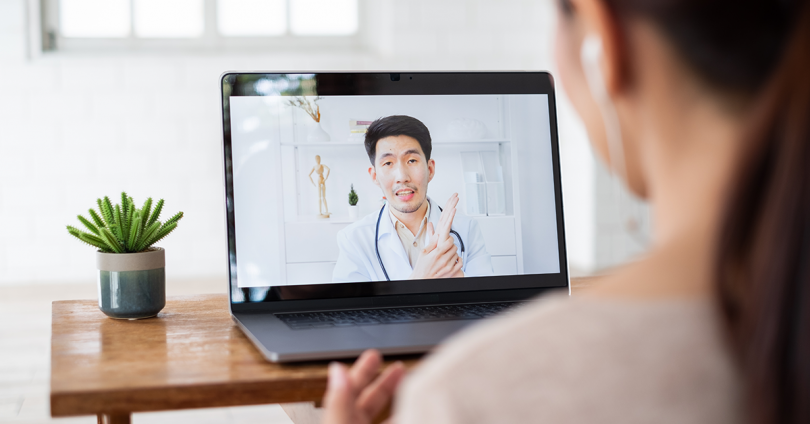The COVID-19 pandemic has changed so much in our daily lives — including how we visit our family doctor. And while family physicians are providing care during the pandemic, it can be confusing to know when it’s time to call.
Dr. Sharon Domb, a family physician at Sunnybrook Health Sciences Centre, corrects some misinformation about what care is available with family physicians, offers advice to patients about when to seek care and shares thoughts on how patient care could change post pandemic.
Family physicians are providing care
“We’ve changed in terms of what we’re bringing into the office, what we’re not bringing into the office, but we’ve always been providing some in-person care,” says Dr. Domb. “There’s been some misinformation out there that family doctors are closed, and that’s not true.”
She says while some patients may not be going into the office to see their family doctor, there are ways to provide high-quality care over the phone or virtually.
“There are a lot of things in family medicine that are amenable to virtual care,” she says.
And for patients who do need to be seen in person, there are infection prevention and control measures in place to keep you safe. This includes masking, physical distancing in waiting rooms and common areas and for many clinics — including at Sunnybrook — enhanced cleaning measures.
Contact your doctor about routine screenings
While there have been delays in some routine screening and preventive care throughout the pandemic, Dr. Domb says not to assume everything is cancelled.
“Certainly, for pediatrics, there’s never been a recommendation to delay immunizations,” she says.
She also says there are ways for patients to have bloodwork completed without having to come into the office, since requisitions can be emailed and patients can schedule their own appointments at labs. Other tests, such as the FIT test that screens for colon cancer, can be mailed to a patient’s home.
If you are due (or overdue) for a screening, Dr. Domb suggests reaching out to your family doctor for direction.
Seek care if you have symptoms
Dr. Domb says when cases of COVID-19 increase, her office typically sees more cancellations. But she wants patients to know they should always contact their family doctor if they are experiencing symptoms or feeling unwell.
“If you have symptoms that are concerning to you, do not hesitate to come in because your risk of avoiding care is going to be higher than your risk of getting care,” she says.
She says she is concerned doctors will see an increase in late-stage illness post pandemic because of delayed screenings and patient hesitation about seeking care, so she strongly encourages anyone who has concerns about symptoms to call their family doctor and schedule an appointment.
Medical care post COVID-19
Looking ahead to medical care beyond the pandemic, Dr. Domb hopes physicians will be able to provide some care virtually. She acknowledges it won’t work for every specialty, but she says there would be a place for a hybrid model of in-person and virtual care to continue within family medicine.
“It’s helpful for patients to be able to have a 15-minute visit with their physician and not to have to take half a day off work to do that,” she says.








